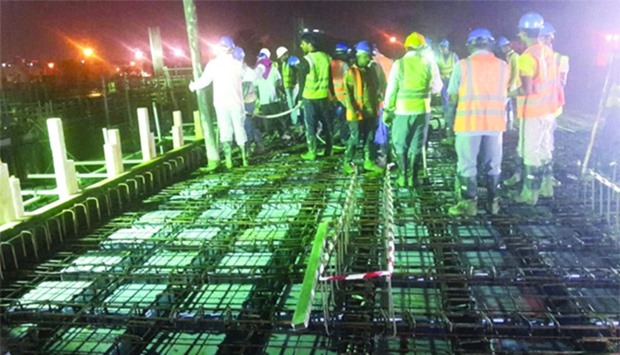There has been a growing demand from sections among the country's construction workers for shifting all outdoor works after sunset in view of the scorching heat during the day.
Like many residents, most workers deployed for duties outdoors feel such a move would not only protect the workers from heat related illnesses but also contribute to better productivity.
Some workers told Gulf Times it is becoming increasingly difficult to carry out works under searing heat Qatar is experiencing these days.
Though the summer mid-day work ban, prohibiting all outdoor works on construction sites between 11.30am and 3pm, is coming into force from tomorrow until the end of August, workers feel the three-and-a-half hour break is far from enough to protect them from the intense heat.
Inquiries made with work supervisors at some of the construction sites in Doha's open areas found they preferred evening duty hours instead of the unbearable heat of the day time.
While recalling his experience, a site supervisor said many of his workers who worked outdoors during their initial contract period chose not to return for jobs once they went on their two-month annual vacation.
"On the contrary, almost 99% of those who were working in shaded or protected areas returned for duties after their vacation," he recalled.
A senior project engineer with a major construction group said his experience has proved that most of his workers delivered better results while working in the evenings during the summer months of June, July and August. He recalled the successes achieved in meeting deadlines during the evening schedule.
Some of the companies have successfully experimented evening duties in the peak summer months and working hours varied between 7pm and 4am.
However, most workers generally have no opposition to working late in the evenings during the extreme summer, it is understood.
While citing some logistical and similar difficulties for implementing evening working hours in his site, a work supervisor said it is mainly owing to increasing overheads likely to be incurred on account of such changes that most companies are forced to continue with the age old practice of starting work in the morning hours even in the summer months.

A night time scene from a site in Doha, where outdoor work starts usually only from 7pm.
